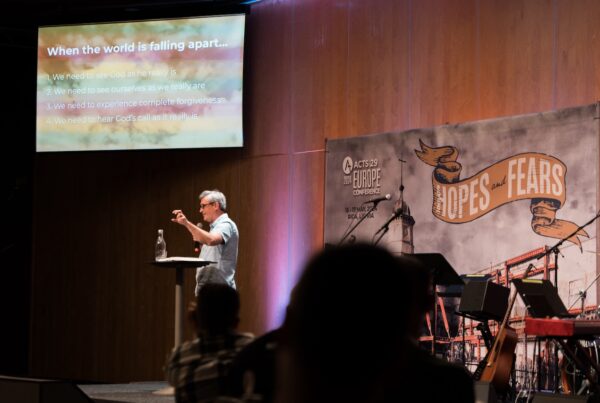I remember when COVID 19 first landed in South Africa. I must confess that I was fearful and confused, and like everyone else in the world I was glued to my phone and television as I consumed an unhealthy dose of news. It had not even been three years since our church was planted. Will the church even survive a crisis of this scale (I wondered)? In the coming days, we entered a national lockdown which resulted in us not meeting in person for close to 6 months. With each passing wave, that which seemed unusual has now slowly become the new normal. Two years into this pandemic, it’s important that we learn from this experience. Here are some lessons that the pandemic has taught me…
1. God’s church is more resilient than we often give it credit for
When the pandemic first hit, I was deeply concerned for our church. I thought of all the families who were struggling through many challenges and wondered if they would overcome them. As the economic forecasts were made and we were plunged deeper into junk status, I feared the worst financially for our community. Yet, despite all these real challenges, the church of Christ has stood tall. The Gospel was preached online, people were saved, the poor were cared for, churches were planted, and the body of Christ rallied around each other to make sure that the kingdom of God was manifested. There is a sense in which this is not surprising. God’s Word promises it (see Matthew 16:18 & Revelations 2:8-11) and we have read many accounts of how the saints in the past have done this (e.g. the Reformers’ response to epidemics in their cities). There is something beautiful in seeing this with your own eyes though – knowing that in the future people will look back and marvel at how God’s people overcame the greatest of odds because the Lord was with them.
2. Do we really understand what our people find persuasive?
When you go through the process of planting a church, you write down a page or two (or at least imagine) the type of people you are reaching out to. You think of their interests, influences and values all in the name of discovering how you would share the Gospel in a contextually relevant way. Looking back at that piece of paper, I probably gave scientific, rational and conceptual reasoning too much emphasis. Our people are not fully persuaded just by numbers and scientific arguments the way people were a decade or two ago. If our sermons are aiming at convincing people with intellectual arguments alone, they are not hearing us. We need to work harder to figure out what persuades our people so that we can bring the Gospel to bear in a way that answers the questions they are asking, not the ones our fathers asked 30 years ago.
3. Our churches are too Sunday centric
When you take away the Sunday service, what is left of your church? This is a question I never thought I would have to wrestle with when I planted the church. Now we have collectively spent close to 10 months without in-person Sunday gatherings. What it showed me is that I was not preparing my people well enough for life beyond Sunday. I thought I was, but more work needs to be done in helping our church members wrestle with what it looks like to be a Christian when Christians are not around. In essence, this is a question of effective and meaningful discipleship. It is helping our people to see Jesus in their lives – beyond the emotions and performance of a Sunday service. It is helping our people to create the daily Christian disciplines that will help them thrive, even when the church doors are closed.
4. The gap between the haves and the have-nots is wider than we think
Church planting in the city, where we all dress well, use smart phones and have DSTV, can make us fall into the illusion that the disparity between the rich and the poor is not that big. The pandemic shattered this illusion for many of us. One of the ways this was exposed was in access to reasonably priced data. While those in suburbs enjoyed the wonders of unlimited, fast and reliable fibre for under R600, in the townships people were paying exorbitant prices for a few Gigs of data. The obvious effect of this was that we could not all jump into one zoom call and have a service because some had to save their data for school or work purposes. The other way it was exposed was through the unemployment rate during the pandemic. Jobs that could be done remotely (largely professional services) were kept while many of those in the working class had to contend with pay or job cuts. In one church body, some are working from home while others are applying for social welfare benefits. Churches need to think more creatively about how to serve both groups and not add to the tensions that already exist on a societal level. The Gospel already addresses this, but we need to figure out how it works itself out in our various contexts.
Conclusion
Winston Churchill once said, “never let a good crisis go to waste”. These are wise words for all church planters to consider. The COVID 19 pandemic brought pressure on us that has displayed the wonderful diamonds that were hidden among us, but it also exposed the vulnerable cracks of false assumptions and blind spots that exist in all our churches. This is a time that requires great wisdom from us. Thankfully the Lord of wisdom generously provides to all who ask Him…
5 If any of you lacks wisdom, you should ask God, who gives generously to all without finding fault, and it will be given to you. (James 1:5)











